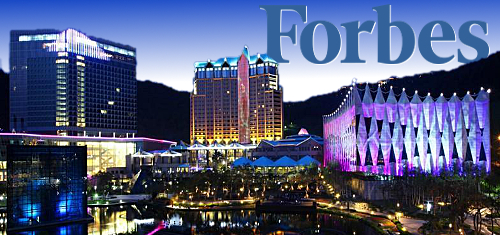 South Korea’s casino market is still too small to benefit from a fully developed relationship with junket operators, according to a PricewaterhouseCoopers analyst.
South Korea’s casino market is still too small to benefit from a fully developed relationship with junket operators, according to a PricewaterhouseCoopers analyst.
Junkets have made themselves integral to Asian casino markets like Macau but PwC Korea partner Glenn Burm told GGRAsia that neither junkets nor Korean casino operators “have the volume to accommodate the costs” associated with bringing in foreign VIP gamblers.
More to the point, Burm said junkets have failed to gain a foothold in Korea because the casinos “prefer to do direct marketing to VIPs.” This results in fewer high-rollers making the trek to Korea but those who do generate more revenue for the casino because there’s no need to pay junket commissions
South Korea currently has 17 small casinos and a number of larger integrated resorts in development but Burm doesn’t believe the new venues will alter the junket dynamic. Burm says projects like the Mohegan Tribal Gaming Authority’s joint venture are “more of the US model,” i.e. focused on mass market gamblers, not VIPs.
KANGWON LAND MAKES FORBES LIST
Meanwhile, Kangwon Land, the only Korean casino that’s allowed to admit Koreans, earned a new feather in its cap by making the latest Forbes 2000 list of the world’s biggest public companies, which is based on a composite score from equally-weighted measures of revenue, profits, assets and market value.
Kangwon Land (pictured) ranked #1,928 on Forbes’ list with a market cap of $7.8b as of May 2016. The company performed even better in terms of profitability (#1,422) and market value (#1,365). Kangwon Land reported sales of $1.44b and profits of $390.2m in 2015, while Q1 2016’s profit of $122m put the company on track to beat last year’s total.
There were only seven casino companies on the Forbes list, led by Las Vegas Sands (#432), MGM Resorts (#989), Galaxy Entertainment Group (#1,090), Caesars Entertainment (#1,198), Genting (#1,246) and Wynn Resorts (#1,990).
Wynn’s annual revenue of $4.1b is nearly three times that of Kangwon Land’s but Wynn’s profit of $173m was less than half of Kangwon Land’s. Moreover, Wynn has to compete in both Las Vegas and Macau while Kangwon Land’s monopoly on local gamblers doesn’t expire until 2025. Ah, certainty.
